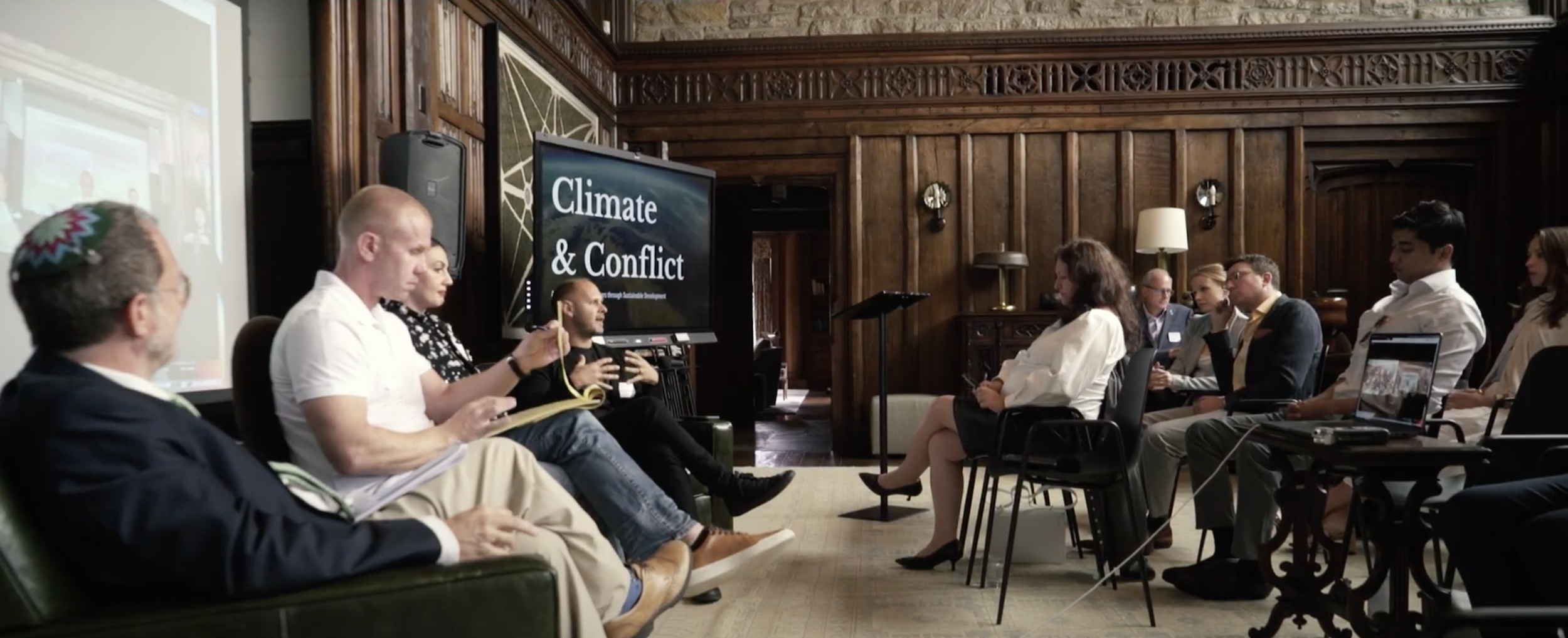2022 Climate and Conflict Convening
Partner
Foundation House
Location
Greenwich, CT
Date
Sept 2022
SDG’s Addressed:
The Peace Department held a Climate & Conflict Convening at Foundation House on September 25th, 2022. This event brought together eight experts from various fields to discuss how to solve climate-related conflicts across two panels and a breakout session.
The inaugural of the Climate & Conflict convening in September 2022 featured in-depth discussions on the challenges posed by climate change to conflict-prone regions, as well as potential solutions. The event included two panels and breakout sessions, focusing on critical areas such as India/Pakistan, the MENA region, Sub-Saharan Africa, and the interconnected solutions for energy, water, and food security.
The first panel, "The State of the Problem," addressed how climate change exacerbates existing conflicts. Nazanine Moshiri, Crisis Group’s senior analyst for Climate & Security in Africa, discussed how climate impacts, such as droughts and floods, intensify resource competition and ethnic tensions in countries like Kenya, South Sudan, and Somalia, leading to violence and displacement. Dr. Harry Keatts Chenault Jr., a Fulbright Scholar, emphasized the role of water in Middle Eastern conflicts, noting how the depletion of water resources in war-torn countries like Syria threatens basic survival. Ameya Kilara, an expert on the India-Pakistan conflict, highlighted the Siachen Glacier as a flashpoint where climate change complicates an already volatile territorial dispute.
The second panel, "Solutions for People & Planet," included Dr. Martin Wainstein, who emphasized the need for global collaboration to limit warming and presented projects aimed at achieving the 1.5°C goal. Yosef Abramowitz showcased solar energy initiatives in Rwanda and Israel, illustrating how philanthropic and market-driven solutions can foster economic growth and peace. Brian Iversen advocated for sustainable water infrastructure, including low-pressure irrigation, while Mona Hamdy warned of the risks associated with poorly executed philanthropic efforts, using Somalia to highlight how neglecting maintenance can exacerbate water scarcity and conflict.
The event concluded with breakout sessions on water, agriculture, and solar technologies, where participants examined advancements, challenges, and opportunities for collaboration.







